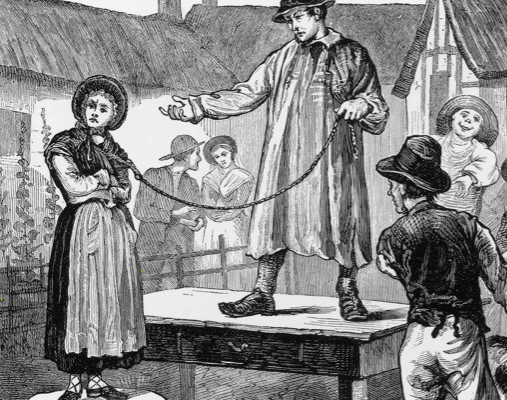THREAD: Women& #39;s legal rights in Islam, compared to British modern history.
This thread will compare some legal rights in Islam, revealed 1400 years ago in the 7th century AD, to their development in British modern history.
1. A)Property: In the UK, before the Married Women’s Property Act 1882, common law doctrine viewed husband and wife as one person; who was the husband, so a woman& #39;s pre-marital property became the husband’s and so did post-marital property and her earnings also became his.
2. Islam on the other hand, gave women the right to keep their own property going into marriage, with the husband not having a share in any of it without permission, 1400 years ago, following the rules of Surah an-Nisah 4:29, and 4:4.
3. B) Divorce: Before the Matrimonial Causes Act in 1857, divorce was virtually impossible for most men and women, as only the wealthy could afford the 3 stage divorce procedure that involved parliament.
4. Even for the wealthy, men were able to divorce on the basis of their wife’s adultery alone, whereas women had to prove adultery aggravated by the marital offence of incest or bigamy, which continued until the third Matrimonial causes act in 1923.
5. Even after the 1857 Act, Penelope Russel states that a contemporary newspaper report writing about ‘The Cost of a Divorce’ in 1861 said that for the divorce procedure: & #39; £200 – £100 for the wife’s cost and £100 for the husband’s is the smallest sum that can be calculated on."
6. Islam on the other hand, women are given the right to initiate no-fault divorce through a method known as khul if the woman dislikes her husband, simply by returning the dower, 1400 years ago. This is confirmed by Quran 2:229, and the following Hadith:
7. "The wife of a man called Thābit ibn Qays came to the Prophet and said : ‘I do not find any fault in Thābit& #39;s religious commitment or his morals but I dislike him so much and cannot continue to live with him for fear that he drive me to apostasy.’ The Prophet asked her:
8. ‘Will you give back to him the garden he gave you [as a dower]?’ She replied: ‘Yes.’ The Prophet ordered Thābit to take back the garden and divorce his wife."
9. C) Child custody: The law in the UK in the early nineteenth century saw the father as the natural guardian of the children. It perceived that he had an absolute right to their custody and he could deprive the mother of any contact in his absolute discretion.
10. John Wroath adds that even if the father committed adultery, the father continued to have custody. Meanwhile, if the mother committed adultery the judge would refuse the mother both custody and access to the child. Common law regarded the father as their natural guardian.
11. Furthermore, the father could appoint a guardian to exercise his parental rights for him either during his lifetime or after his death where he had precedence over the mother and exercised all the rights of the father.
12. This remained the case until the late 19th century, with the 1873 Custody of Infants Act, and Wroath argues continued even after this into the beginning of the 20th century.
13. Islam, on the other hand, gives the woman preference over the man in being entitled to the custody of the child until the child is able to decide for himself, 1400 years ago. This is supported by the hadith:
14. "A woman said: O Messenger of Allah, my womb was a vessel for this son of mine, and my breasts gave him to drink, and my lap was a refuge for him, but his father has divorced me and he wants to take him away from me...
15. ..The Messenger of Allah (pbuh) said to her: “You have more right to him so long as you do not remarry.” Furthermore, the divorced father is obliged to maintain the child accommodation, food, drink, clothing and education as confirmed by Surah al-Talaaq 65:7.
These are just some of the basic legal rights given to women in Islam that took 12 more centuries to begin to be implemented in the UK. There are many more aspects, education among them that could be discussed another time.
End of thread https://abs.twimg.com/emoji/v2/... draggable="false" alt="🙂" title="Leicht lächelndes Gesicht" aria-label="Emoji: Leicht lächelndes Gesicht">. Likes and retweets appreciated.
https://abs.twimg.com/emoji/v2/... draggable="false" alt="🙂" title="Leicht lächelndes Gesicht" aria-label="Emoji: Leicht lächelndes Gesicht">. Likes and retweets appreciated.
Main sources: & #39;Women& #39;s legal landmarks& #39;, by Erika Rackley and Rosemary Acunty, and & #39;Until They Are Seven: The Origins of Women& #39;s Legal Rights& #39;, by John Wroath.
Main sources: & #39;Women& #39;s legal landmarks& #39;, by Erika Rackley and Rosemary Acunty, and & #39;Until They Are Seven: The Origins of Women& #39;s Legal Rights& #39;, by John Wroath.
unroll @threadreaderapp

 Read on Twitter
Read on Twitter



